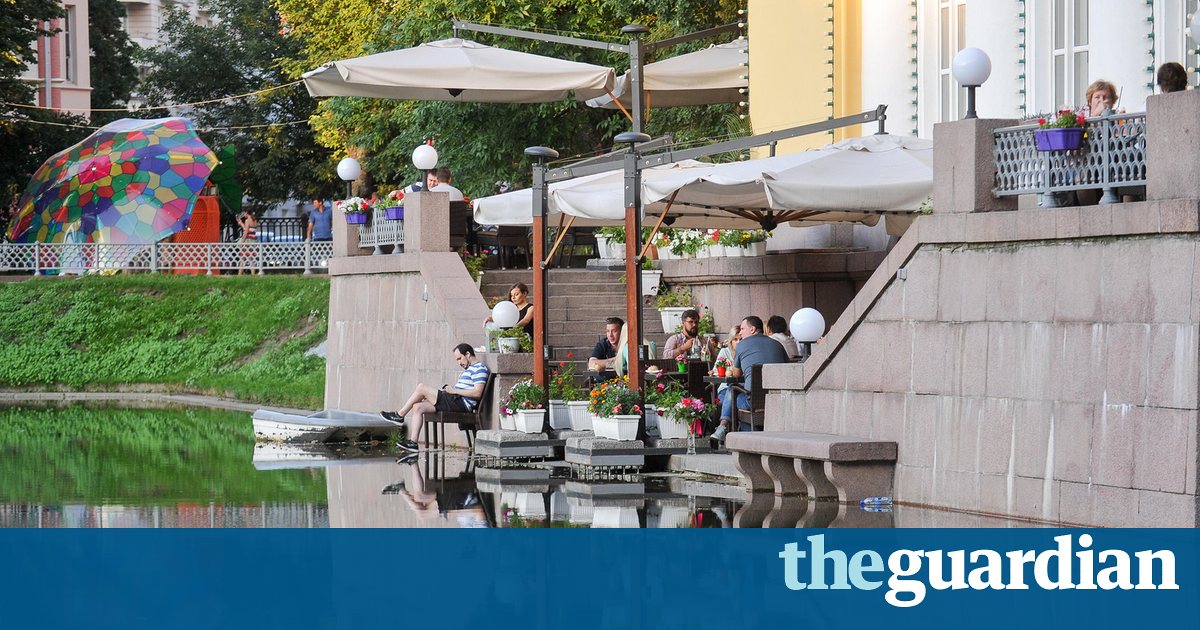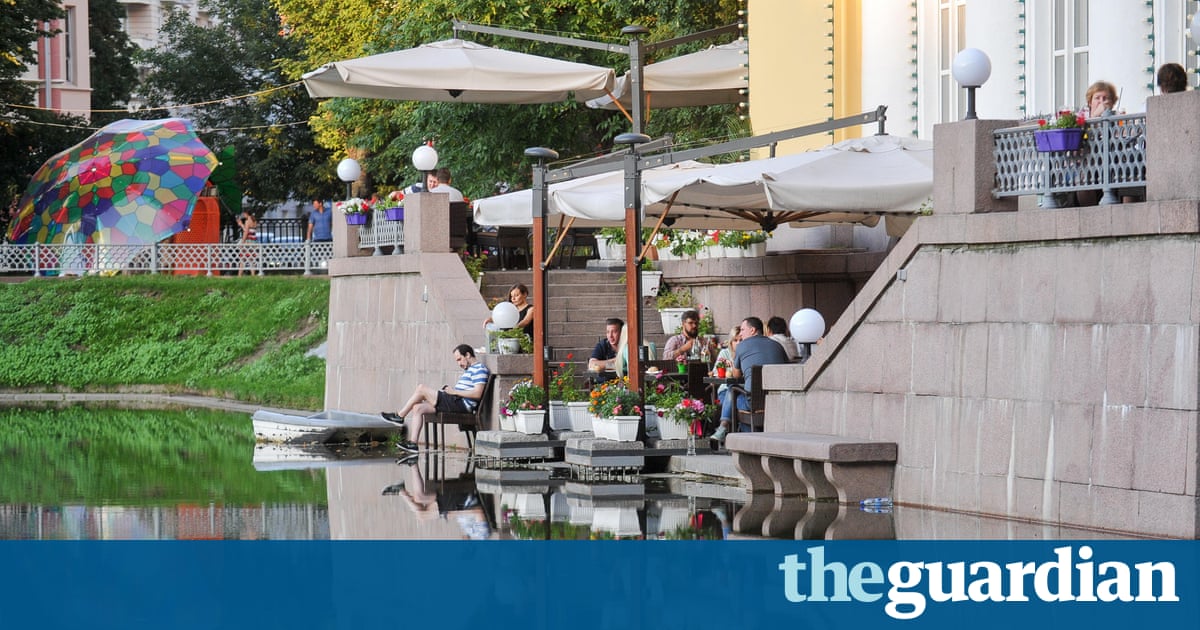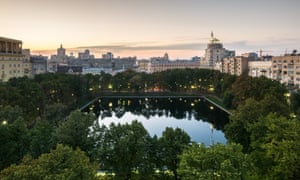Ruined by locusts: the Moscow area that got too cool, too quickly

Patriarchs Ponds once housed poor families in communal apartments. Slowly it became home to Moscows wealthy elite but then the hipsters arrived

In a city of high-rise apartment blocks and vast, teeming traffic arteries, tranquility is at a premium in Moscow. For that reason, many rich Russians have been drawn in recent years to Patriarchs Ponds, a quiet area of pretty art nouveau buildings set around the eponymous pond (once there were three, now theres only one) right in the centre of the city.
The area has been at the forefront of the new Moscow that has appeared over the past few years, packed with teeming cafes and bars, fashion boutiques and delicatessens. But as the area gets so popular that on weekend nights it overflows with outsiders visiting its bars and restaurants, the rich residents have complained that the influx is ruining their special area. Others say it was the rich new residents themselves who altered the areas Soviet-era charm.
Gentrification in Moscow takes on rather a different form to other major cities, mainly due to the nature of the Soviet experience. A century ago, the city saw uniform de-gentrification, as the aristocracy was kicked out of juicy property in central Moscow after the Bolshevik revolution. The art nouveau mansions of Patriarchs Ponds were turned into embassies, while the handsome blocks of spacious apartments belonging to merchants were stripped out and turned into kommunalki (communal apartments), in which several families would share a big flat, one to a room.
Evgeny Asse, a 70-year-old architect who has lived on Patriarchs Ponds since 1948, in an apartment block designed by his father, also an architect, recalled that in the 1950s, the district was far from glamorous.
There were quite a lot of hooligans around. It wasnt until the 1960s, when some new brick blocks were built for the Soviet elite, that it started to become more prestigious, he says.
Of course it was always a pretty area but there was none of the high life you have now, says Yulia Eybogina, who spent her early years in a communal apartment in the district, between 1987 and 1993. My mother remembers that the other people in the flat would tell us when on a particular day sugar or other products would be available, and wed head off to queue for them.

During the 1990s, a gentrification of sorts took place across the whole of the central area of the capital, as businessmen bought up kommunalki from their multiple owners, offering each of the families their own place to live somewhere on the outskirts of town and recreating the huge, luxurious apartments that had once existed before the Soviets kicked out their initial inhabitants. While few residents of kommunalki preferred them to living in a whole apartment, they did promote a kind of social integration that is now lost.
The whole essence of kommunalka life meant you didnt live with the same kind of people, Asse explains. Doctors and engineers could live with construction workers; everything was all mixed up. There was something quite good about that, and that mix is what we are losing now, when we see much more separation and segregation of the classes.
Slowly, Patriarchs Ponds became the province of business people and the wealthier creative elite even billionaires.
Its an island of Europe in Russia. You feel free, you feel like youre in the west. But then at the same time its like the old, real Moscow out of Bulgakovs novels, says Sophie Shevardnadze, a television chat show host and the granddaughter of the previous Soviet foreign minister, who has lived in the area for a decade.
While not everyone can afford to live in Patriarchs Ponds, the area has become a magnet for different kinds of people. Hipsters and creative types work from cafes on the ponds, wealthy housewives shop for designer clothes and healthfoods, and nouveaux riches come to drink at the bars. On a Friday night, it is not unusual to see a Lamborghini parked outside an edgy hipster bar. In London terms, the area became Hoxton, Primrose Hill and Knightsbridge, all rolled into one.
This summer, the neighbourhood had an extraordinary atmosphere walking down Malaya Bronnaya street at midnight on a Friday or Saturday, there were Italian restaurants where people perched on steps on the street eating a risotto, and dozens of bars where people spilled into the street, drinking cocktails and laughing until the early hours. Hardly a week went by without a new trendy eatery or bar opening up.
This was something new for Moscow and it caused irritation among the residents, who suddenly found their quiet neighbourhood turned into Moscows main party drag. A roundtable discussion with wealthy local residents in the lifestyle magazine Afisha drew ire from other Muscovites this summer, as they referred to the newcomers as locusts and complained that the areas high-class atmosphere was being ruined.
Shevardnadze says her own irritation was nothing to do with class, but simply that the quiet area she had moved into had suddenly become a party district.
People were smashing things up until 6am outside my windows. When I moved in it was a residential area with a few cute restaurants. This is not what I signed up for, she says.
Police have since intervened, demanding most bars and restaurants close by 11pm, unusual for a city where life goes on round the clock.
You have a confrontation now between two classes in the area, says Asse; the new hipsters with their energy, and those rich people who paid good money and want to live in a quiet area. But they also bought here, and not somewhere quiet outside town, because they wanted somewhere with energy, and thats the paradox.
Are you experiencing or resisting gentrification in your city? Share your stories in the comments below, through our dedicated callout, or on Twitter using #GlobalGentrification